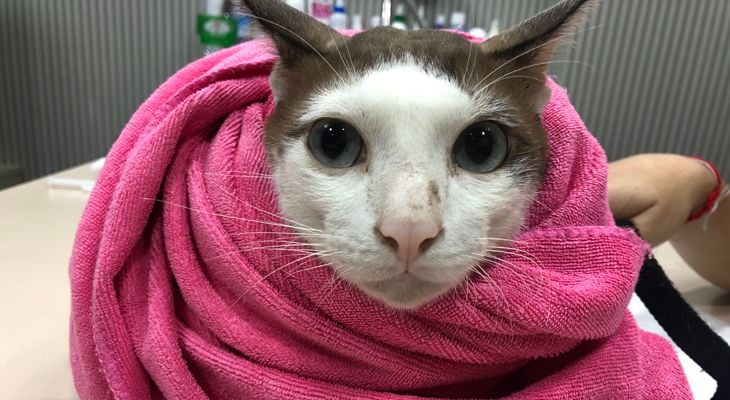
A diagnosis of anemia means your cat does not have enough red blood cells and/or hemoglobin to carry sufficient oxygen to all of his or her tissues. Each red blood cell lives only 70 to 80 days, so your cat’s body must constantly replenish these. Anemia itself is not a disease; it indicates that some disease condition or process is going on in your cat.
If your cat has nonregenerative anemia, the blood marrow is not producing these red blood cells fast enough. Feline leukemia virus infection often causes nonregenerative anemia. In regenerative anemia, enough red blood cells are produced, but they are dying off too fast or are being lost in blood via hemorrhage. Your feline veterinarian must determine which type of anemia your cat has in order to administer the proper treatment.
When people hear the term anemia, they usually associate it with iron deficiency. However, this is rarely the cause of anemia in cats.
Symptoms
Owners of anemic cats may notice unusual paleness in their cat’s gums rather than the normal, healthy pink color. The other major symptom is lethargy or loss of stamina.
Diagnosis
If your veterinarian suspects anemia, he or she will want to take a blood sample and do a packed cell volume test, also called a hematocrit. This involves processing the sample in a centrifuge to separate red blood cells from the liquid plasma. A normal cat’s blood should include 25 to 45 percent red blood cells. If this count is below 25 percent, your cat is anemic. Your vet may also use other tests.
Causes
Many diseases and conditions can cause anemia. These can generally be grouped into diseases that cause blood loss, diseases that break down or destroy red blood cells and diseases that suppress bone marrow. For example, parasitic infestations, intestinal tumors, injury and diseases that reduce blood clotting can all cause blood loss and lead to anemia. Sometimes people wonder whether anemia is hereditary. While anemia itself is not hereditary, your cat might inherit a disorder that causes this red blood cell deficiency.
Hemolytic Anemia
Immune-mediated hemolytic anemia causes a cat’s immune system to reject red blood cells as foreign bodies. This type of regenerative anemia springs from many causes and is especially hard to diagnose and treat. Immune-suppressing medications sometimes help this potentially fatal condition.
Treatment
Your veterinarian first needs to determine the underlying disease in order to appropriately treat anemia. Treatments include deworming, steroids and other medications. In severe, life-threatening cases, your cat may require a blood transfusion to stabilize his or her condition. Prognosis varies depending on the anemia’s cause. Otherwise healthy cats that are diagnosed early have the best prognosis.
If your cat is listless and has pale gums, call us today. We can diagnose your cat and help devise the best treatment plan.

